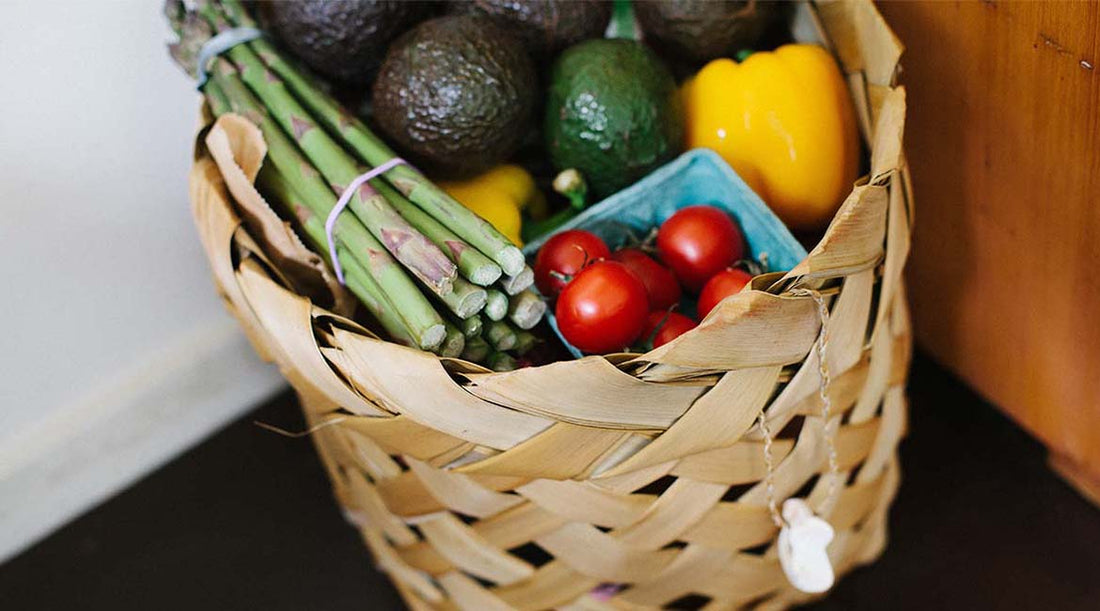
It’s Plastic Free July again! Since 2011, Plastic Free July has challenged millions of people all over the world to lower their plastic consumption – so we can reduce pollution and have cleaner communities. The good news is, anyone can get involved in reducing the amount of plastic they consume. If you’ve been wondering how to make single-use plastic a smaller part of your life, here are a few easy shopping tips to help you. The good habits you start now could last a lifetime.
If the concept of ‘plastic free shopping’ conjures up images of a life spent eating solely dried pulses and nuts, have no fear. There are lots of ways to reduce your plastic while you shop – that will help you save money and eat healthier too.
Nude food
In the produce aisle of your local supermarket, look for unwrapped fruit and veges and pop multiples in mesh bags or even reuse clean plastic bags. It’s not always easy to find everything you need without getting it wrapped in plastic, so Farmer’s markets could be a useful source of packaging free produce too.
Give single serves a swerve
One of the biggest ways we can reduce plastic from our regular shopping is to avoid anything that contains lots of individually wrapped items. It seems like a no-brainer, but it’s easy to accidentally pick up a bag or box that’s filled with plastic wrapped sweets, mini bags of potato chips or single serves of miso soup. Double check the outer packaging if you’re unsure.
Buy big or go home
Whether you’re buying toilet paper or tea bags – the principle is the same. If it works with your budget and storage space, try to choose the biggest amount or largest container you can. This works brilliantly for things you use a lot of, like laundry liquid, body wash, cooking oil, and dry goods like rice, sugar or flour. The bonus is that this tactic is also likely to save you money on your grocery bill.
Incredible bulk
For an artful wholefood filled pantry that’s both sustainable and ‘grammable, packaging-free bulk shopping is becoming widely accessible, and can mean filling your shelves with a wide variety of organic dry goods without emptying your wallet. Kit yourself out with cute Weck or Mason jars, or start saving and sterilising the glass jars and lids of food you’ve already eaten.
Contain yourself
Some supermarket deli, seafood and butchery departments now let customers bring their own containers to cut down on plastic packaging. Next time you shop, bring clean containers with well-fitted lids and ask at the counter.
Go for glass
If you’re buying packaged food, look for things that can be recycled easily: like glass. Non-waxed or laminated paper and cardboard are readily recyclable, and non-glossy types can often go in your compost or worm farm. Glass bottles and jars are not only recyclable, they’re reusable, and look good in the pantry with your bulk items. Glass jars are also great containers for DIY face masks and other homemade skincare potions and lotions. Tip: pop them in your dishwasher and dry them in the oven to sterilise them before filling.
Reuse and regift
Bring a couple of extra reusable bags you’re not attached to, so you can help a forgetful fellow shopper out. What goes around comes around.

